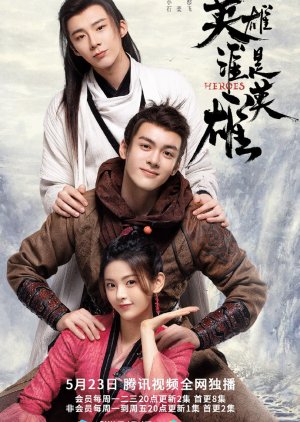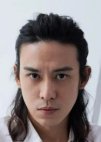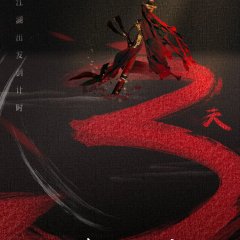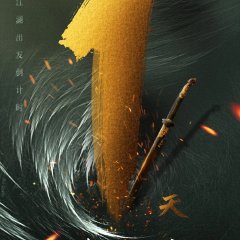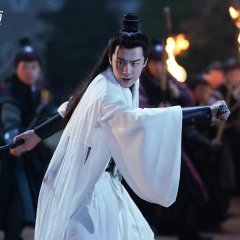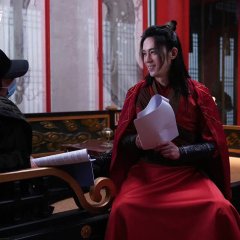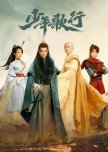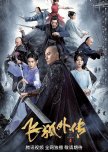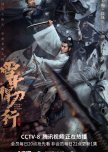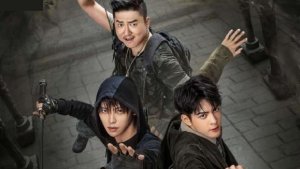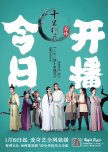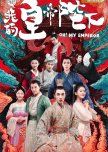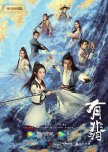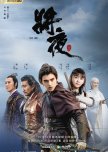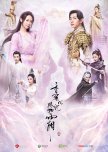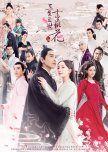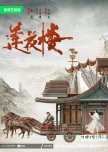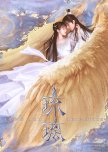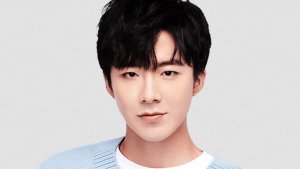 Liu Yu Ning: From Street Performer to Rising Star
Liu Yu Ning: From Street Performer to Rising Star The kind Wang Xiao Shi leaves the mountain for the first time to travel. He encounters Wen Rou, Bai Chou Fei, and Su Meng Zhen who become his lifelong friends. In the capital city where the capable succeed, he experiences brotherhood and romance. Squashing evil with his friends transforms him from inexperienced youth to responsible hero. (Source: Tencent app; edited by MyDramaList) ~~ Adapted from the novel "Shuo Ying Xiong Shei Shi Ying Xiong" (说英雄谁是英雄) by Wen Rui An (温瑞安). Edit Translation
- English
- Русский
- magyar / magyar nyelv
- עברית / עִבְרִית
- Native Title: 说英雄谁是英雄
- Also Known As: Say Hero Who is Hero , Shuo Ying Xiong Shei Shi Ying Xiong , 說英雄誰是英雄
- Director: Li Mu Ge
- Screenwriter: Shuang Cheng
- Genres: Wuxia, Drama
Where to Watch Heroes
Cast & Credits
- Joseph ZengWang Xiao Shi/"Little Rock"Main Role
- Yang Chao YueWen RouMain Role
- Liu Yu NingBai Chou Fei/"Cabbage"Main Role
- Baron ChenSu Meng ZhenMain Role
- Meng Zi YiLei Chun [Six Half Hall]Main Role
- Zeng Yi XuanZhu Xiao YaoSupport Role
Reviews

This review may contain spoilers
We don't need another hero.
This is a dark, intensely melodramatic classic wuxia about heroes. The Chinese title 说英雄谁是英雄 (Speaking of heroes, who is a hero?) asks the question who is a hero 英雄/yīngxióng? What is distinctive about this story is that there is no main protagonist. It is left to the audience to decide which character(s) are heroes. Although novelist Wen Ruian is not considered to be in the same league as Jin Yong or Gu Long, there is a cynical provocativeness that distinguishes this best work of his. The martial artists or 大侠/dàxià, featured in this are swordsman known for their legendary weapons. Despite 江湖/jiānghú lore about their great feats and relative prowess, 一山还有一山高, there is always a higher mountain so the outcome to any encounter between these fighters is not known until actually put to a test.Li Muge's brilliant camera work evocatively captures the essence of a wuxia from the wild vastness of the terrain, the spirit of adventure, the air of intrigue to finally, the profound sense of fatalism and impermanence. Yet despite the stunning aesthetics, the fast paced and bloody fight scenes are over choreographed and somewhat lacking. The action scenes mostly comprise of discontinuous slasher heavy shots that are stitched together to end in exaggerated fierce posing by the combatants. There seems to be a lot of slashing around without capturing the flinch inducing violence and intensely muscular swordsmanship seen in shows like Lu Yang's Brotherhood of Blades. The two final fight scenes are powerful and much more satisfyingly executed with the right mix of violence, emotion and intensity.
This drama's ensemble cast delivers nuanced and polished portrayals of memorable characters such as Chen Chuhe's charismatic Su Mengzhen and Meng Ziyi's heart rending Lei Chun. The diversity and eccentricity of jianghu's denizens from the flamboyant Fang Yingkan, the staunch and astute Yang Wuxie, the hilariously coquettish Zhao Xiaoyao , the fanatical Lei Mei , the wily Lei Sun and the enigmatic Di Feijing anchors this wuxia. Naturally the performances of the three young idol actors who represent the next generation of martial artists, suffers by comparison in such formidable company. While both Zeng Shunxi's Wang Xiaoshi and Liu Yuning's Bai Choufei struggle visibly in more complicated scenes, they deliver credible performances overall. Besides, Bai Choufei is a difficult role that would challenge many seasoned actors. As for Yang Chaoyue, her acting mantra must be "when in doubt, just pout" because besides crying, that is what she does best in every scene. Even though Wen Rou is a superfluous and archetypal character, she has many well written comedic moments with the advisor that disappointingly fall flat in execution. I won't lie, the idol actors failed to convince me of any of their relationships or make me care much for them. I find Su Mengzhen's bond with Yang Wuxie far more compelling than Wang Xiaoshi's with Bai Choufei.
The story opens with the young and decent Wang Xiaoshi's first foray into jianghu, tasked by his shifu to deliver a mysterious box to Su Mengzhen, the young master of the House of Golden Wind Drizzle (House Drizzle). Along the way he forms a fast friendship with the deadly and ambitious Bai Choufei and the well-born, pouty and marriage evading Wen Rou. Together, they head to the capital, seeking fame, fortune and adventure. Near the city, Wang Xiaoshi and Bai Choufei save Su Mengzhen from an ambush and the three become sworn brothers. Thus they find themselves allied with House Drizzle and pitted against their arch-rivals, the Six-Half Hall. The high-minded and valiant do-gooders are drawn to House Drizzle while the less scrupulous, commercial and profit minded converge at Six-Half Hall. There are formidable martial artists and yes, heroes at both sects; neither is completely good or bad they simply live by different ideologies.
All too soon, it becomes clear that Bai Choufei's unrestrained ambition and world view is incompatible with that of Su Mengzhen and House Drizzle. This man has a massive chip on his shoulder and his ambition tragically exceeds his ability. Thus his bottom line is flexible and he is willing to get what he wants by fair means or foul making him better suited towards Six-Half Hall. His desire for Lei Chun, a woman who only has eyes for Su Mengzhen, further fans the flames of his resentment. It is inevitable that Bai Choufei succumbs to his worst instincts to become the kind villain I love to hate; one that I can ultimately somewhat empathize with and understand. Sadly, this is where the screenwriter inexplicably decides to whitewash Bai Choufei and rob him of his free will. What follows is one of the worst character assassinations ever. Bai Choufei, a strong minded, unapologetically ambitious and arrogant character is reduced to a mentally unstable puppet of a corrupt government official. He becomes so unhinged, despicable and pathetic that he is little more than a rabid dog that has to be put down. What a waste. None of the other villains really step up; both Thirteen Doom and Fang Yingkan had potential but are too cursorily dealt with at the end and their motives and some of their actions not satisfactorily explained. That said, Thirteen Doom will always be a bit of a hero to me just for gagging Wen Rou.
The ending bloodbath between the sworn brothers is predictable and inevitable. At this point, Li Muge gives in to his love for melodrama and sprays dogs blood over everything with wild abandon. I was nonplussed at the tragicomic drawn out twitching after going splat death scene that eventually just made me laugh. I expected Su Mengzhen to play a more active role in the finale but his decision was already foreshadowed. He explains himself with his parting words 独立三边静 轻生一剑知 which Tencent simply translated as "The fearless brings peace for many but dies a death that's lonely." Those are incredibly fitting parting words for Su Mengzhen that those who love him can understand and must accept. It is actually a beautiful, famous ancient Tang poem with deep meaning that I will hide in a spoiler in the comment section of this review. The ending was good albeit overly melodramatic for my taste.
Which comes back to the conversation about heroes or 英雄/yīngxióng. When all is said and done, a hero does not have to fit the conventional wuxia hero in terms of righteousness or chivalry. It is enough that they are true to their own ideals and thus the hero of their own story. For me, Di Feijing is unambiguously the hero of this story. In his own way, he is no less chivalrous than Su Mengzhen and between them, they maintained a stable balance of power in the capital. He is the one character that is consistently true to his ideals and lives to protect those he loves. I find his chemistry with Lei Chun to be the most natural and moving in the drama. He is the only character who truly and only loved Lei Chun. Tragically Su Mengzhen is the only one that Lei Chun loved even though he did not love her quite as intensely or as selflessly as Di Feijing did. They are the three characters I cared the most about in this drama. I still don't forgive Li Muge for short changing me of Di Feijing's and to a lesser extent, Thirteen Doom's ending combat scenes. It is not enough for me to know that justice is served, I wanted to see it happen. As for Wang Xiaoshi, he is at best a work in progress. Even though he did his best to fix things, he also ineptly set in motion many of the events that led to among other things, Lei Sun's downfall which snowballed into this giant, tragic mess. If he is a hero, we don't need another hero. In any case, as Lei Chun discovered, heroes are not there when you most need them. Best be your own hero.
I have very mixed feelings about this drama. I think I am mostly disappointed because it could have been so much more had the scriptwriter and the director stuck with the novel and not succumbed to whitewashing and dogs blood melodrama. Thanks to the substance and depth of the original works however, it still a good watch if for nothing else, the stunning aesthetics. This feels like a 7.5/10 for me but I bumped it up to an 8.0 because Di Feijing (Yang Tong) is such an unforgettable character, he stole the show as far as I am concerned.
Was this review helpful to you?

Beware: Sexual Assaults Uncut
Yes, this drama consists of some sexual assault scenes of one of the main characters, and viewers be warned to decide if you want to pursue this story or not. It's very rare to have a Chinese costume drama that has the women being violated. Nonetheless, aside from those rather upsetting scenes, the overall drama is consistent with how wuxia dramas generally play out: adventure packed, revenge, pride, justice, brotherhood, friendship, self-sacrifice etc.Wang Xiaoshi (Zeng Shun Xi aka Joseph Zeng) leaves the mountains where he lives, and begins his journey of exploring the world. He meets Wen Rou (Yang Chaoyue) and Bai Choufei (Liu Yuning) and they become best friends and travel together. Wang Xiaoshi is upstanding, easy going, truthful, kind, positive and always sees the best in another person, whereas Bai Choufei is ambitious, ambiguous, cruel and has a shade of darkness around him. As Wang Xiaoshi just wants to see the world, Bai Choufei wants to make a name for himself. Just as they are going from places to places, they unwittingly embroil in the politics of “jiangfu” and meet Su Mengzhen (Chen Chuhe aka Baron Chen) who is the leader of the House of Sunset Drizzle, a powerful upstanding organization helping jiangfu by bringing justice to the poor and weak. Su Mengzhen is sickly and he needs talents to help him. The three men become sworn brothers and vow to stand by each other. However, as the story unfolds, Bai Choufei becomes dissatisfied to come under Su Mengzhen and he strays; he wants to be the number one.
I really like Joseph Zeng. He has an irresistible charisma that attracts viewers. As Wang Xiaoshi, he has really brought alive the character as a positive and unsuspecting personality, and later becomes mature and solemn. His transformation is great and Joseph Zeng has successfully executed the role convincingly. He is a wonderful actor.
Liu Yuning’s acting is equally amazing, from a cold, rather selfish character, to a half crazy, power-crazed lunatic, Liu Yuning has had a great performance. Every snicker he makes sends chills down my spine, that’s how good he is.
Chen Chuhe’s Su Mengzhen is painful to watch. Every time he coughs, my heart goes out to him. Despite being sickly all the time, his character is strong and amazing to watch when he fights. The acting is simply authentic and convincing.
Though she doesn’t, every time when Wen Rou is around, I dread she messes up other people’s plans. Yang Chaoyue’s acting here is a lot better than she was in Dance of the Phoenix and I hope she continues improving her acting skills.
My Verdict
This is a through and through wuxia drama. However, the screen writing is less than desirable with rather childish logic at times, multiple plot holes and tons of inconsistencies. This is supposed to be a story about brotherhood, that's why Wang Xiaoshi is guarding so protectively over their relationship, and that's why he's so devastated when he loses his brothers. The script writing has not really brought out the brotherhood essence strong enough but just bypassing it. What an opportunity lost. The story can get very slow as the love triangle develops, and the replacement of the “lou zhu” at the end feels very random. As in most Chinese costume dramas, almost all the characters that appear at the beginning of the story perish by the end. Having said that, the wirefu acting, martial art sword fighting are all very well executed and convincing.
All these shortcomings become trivial as we dwell deeper into the message of the story: it questions the purpose of life, the difference between living and surviving; it advocates for freedom of ideologies, and denounces authoritarianism; it is very political. The story seems parallel to today’s world in politics: power blinds as in Bai Choufei; government corruptions hurting its own people as in Prime Minister Cai (Lo Ka Leung). And we need heroes like Wang Xiaoshi and Su Mengzhen to clean up the rot, one by one.
This is a great drama for wuxia fans. Great watch!
Was this review helpful to you?
Recent Discussions
| Title | Replies | Views | Latest Post | |
|---|---|---|---|---|
| Novel Spoilers by enchantique | 14 | 0 | Kakek Cabul Jun 15, 2022 | |

